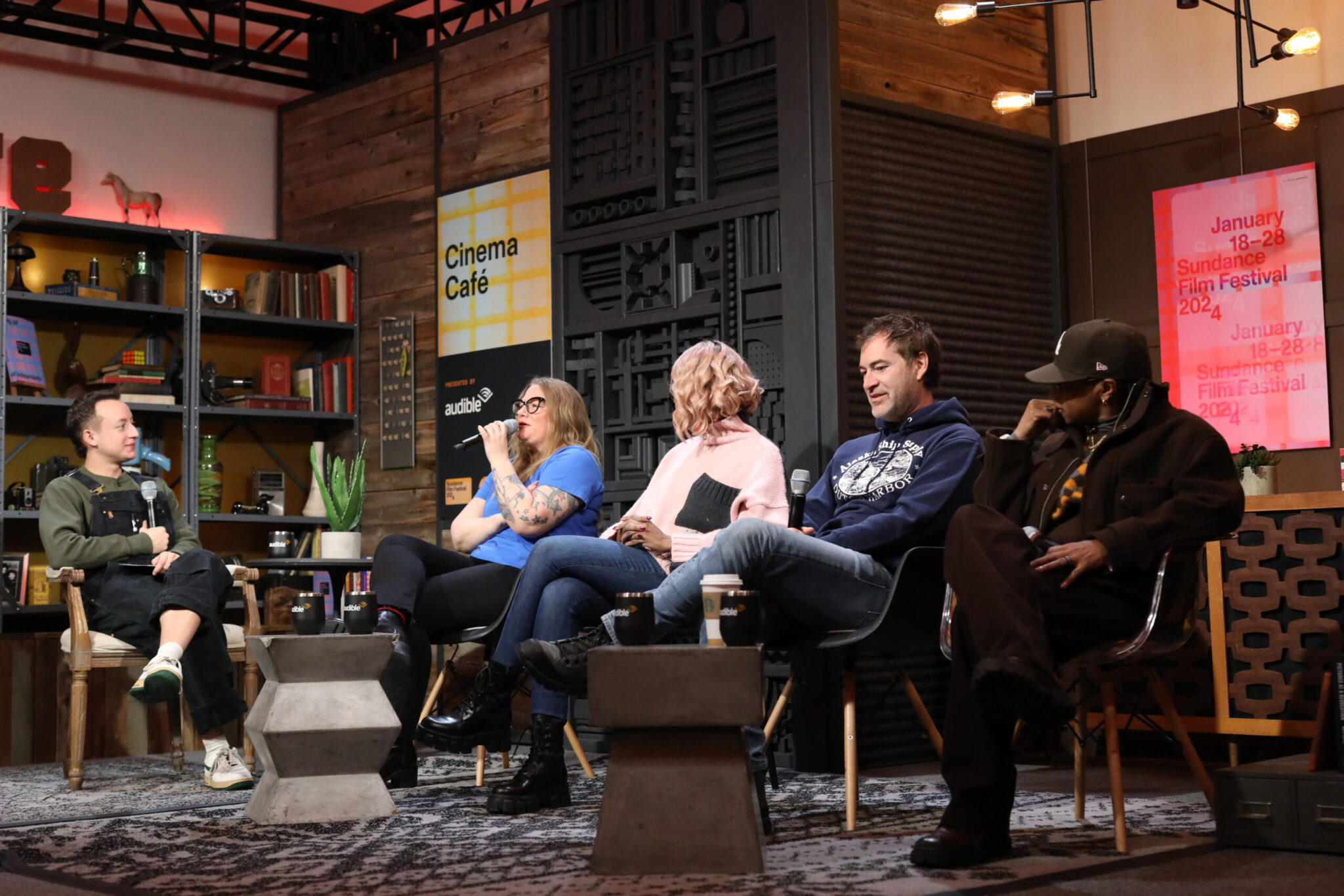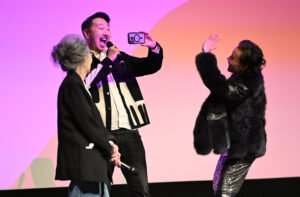Ash Hoyle, Mel Eslyn, Nzingha Stewart, Mark Duplass and Keyonna Taylor (photo by Michael Hurcomb/Shutterstock for Sundance)
On Wednesday, January 24, Filmmakers Lodge was treated to a conversation between two writer and director pairs from within the episodic pilot showcase. Mark Duplass and Mel Eslyn (Penelope) and Nzingha Stewart and Keyonna Taylor (Me/We) came together to talk about the current state of the television industry, how preparing for an episodic project differs from a feature film, and where they hope their pilots will land in the future.
Below are snippets of a conversation that was full of firsthand experiences and laughs.
Mark Duplass on the future of the streamers ecosystem: “The streamer system is not sustainable. They’re losing subscribers and folding into each other. What happened in music and the indie film industry 10 years ago is happening in television now, and if we don’t change [the streamers and companies] are going to die. So the stories that bring systemic racism up front or a story about a girl going into the woods, they’re not going to accept that on a pitch anymore. We need to find a new independent ecosystem [for television] the way independent film was built by Sundance in the ’90s.
Nzingha Stewart on the added challenges for people of color in television: I’m not as much of a business person as I should be, but I think the challenges are different when you are a person of color. The challenge is: Can you trust this will work even if you don’t find your way in? I have had to think about my career in ways that sometimes make me sad because sometimes I want to be doing things with people of color, but I have to do these mainstream projects to be “trusted.” [People will say things] like ‘She did Daisy Jones & the Six, Little Fires Everywhere, so I’ll trust her to do something with people of color because I can [understand] her talent. It’s just a different uphill battle.
Mel Eslyn on the excitement of working in episodic: In pilots, as quickly as you can get off and running [with your plot and your characters], the better. When you’re working in episodic, there are more compromises, which I find very invigorating. You go from having a month or two for a movie [with a single idea], but you have only three or four days for each episode of a show. There’s no time to overthink.
Keyonna Taylor on how she defines success for her show: For me, for Me/We, I was just thinking about the families first because of the stories we were telling. I wasn’t really thinking about the audience — even though we need the audience. I just wanted [the family] to be happy, and it was a little bit of magical thinking on my part, thinking that if people understand what we’re trying to do and it’s coming from a pure place, everybody’s going to love it right? Of course everyone’s going to love it!







